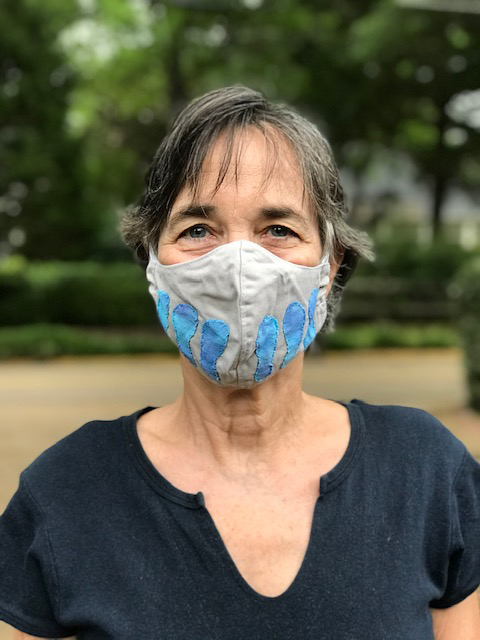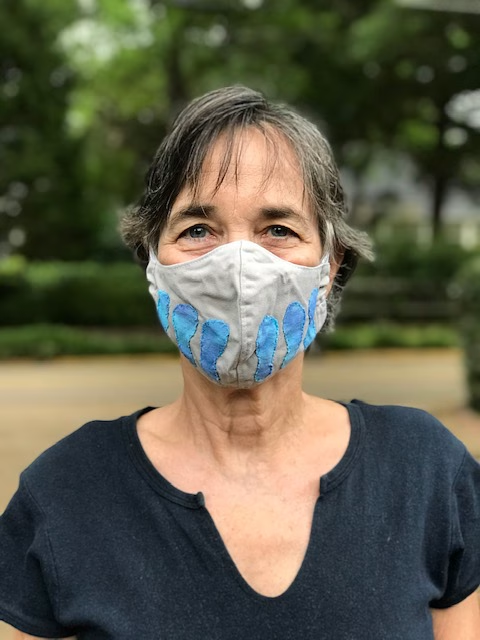By Dr. Jean Gispen
The Mississippi State Department of Health publishes a weekly summary of COVID-19 cases in Lafayette County. In the week ending Aug. 1, 864 cases were reported. The next week, there were 966. The week ending Aug. 15 had 1,063 cases; the next week, 1,160; and the following week, 1,413. The week ending Sept. 5 tallied 1,709 cases.

In each of these weeks, the highest number of cases by far was among 18-to-29-year-olds, with this age range accounting for 45%, 43%, 42%, 41%, 46% and 52% of COVID cases in Lafayette County. That comes as no surprise to any of us. This is a college town, and students drive the economic life of Oxford in addition to driving the COVID cases.
The estimated population of Lafayette County is around 56,000, and Oxford campus enrollment at the University of Mississippi for the 2019-20 fall semester was 19,421. So, roughly every fourth person in Lafayette County is in this high-risk age group.
Those of us who are older were all once between the ages of 18 and 29. We behaved a little more wildly than we do now; we were invincible in terms of our health and somewhat self-centered, and nobody could tell us anything. This is a high-risk age group in terms of catching the virus and spreading it, but we need their help – the rest of us adults are the higher-risk age groups in terms of becoming seriously ill or dying from the virus.
Another interesting aspect of the MSDH summary is that the case numbers are not that different for 30-39, 40-49 and 50-59-year-olds, being roughly a third as high as the numbers for the 18-29-year-old range, but the numbers drop by about 50% in the 60-69-year-old range.
Folks in their 60s have already raised their kids, and so have less contact with high schoolers and college students. Additionally, they are, as a group, more risk-averse than those 10, 20 and 30 years younger. They are old enough to have seen bad things happen to people who didn’t deserve it, to people who were kind and generous and doing everything right.
They are old enough that, when they cut the grass, they wear hats and sunscreen to protect themselves from skin cancers, ear protectors because their fathers lost their hearing as they aged, eyeglasses because the mower can throw up rocks and their eyesight is already less than it once was, and masks because after years in Mississippi, they are allergic to leaves and grasses and pollens.
They act to mitigate risk because they know they are not invincible.
In terms of COVID, that means avoiding the three C’s: Closed spaces, Crowded places and Close Contact. Maybe a fourth C is College students. And that’s a shame.
I have heard from three disparate, but reliable, sources that many Ole Miss students are making pacts not to get tested for COVID if they become ill because they don’t want to isolate themselves or cause their friends to quarantine. The version of the story that I heard Saturday morning while waiting in line for an outdoor breakfast table said that some students are being encouraged in this behavior by their parents.
The folks discussing this said students are refusing to download the Everbridge app, which helps people know whether they have been in close contact with someone who tests positive for COVID. When I said I had that app on my phone, they moved away from me, just as I had moved away from them because one was a non-mask-wearer.
Why would someone who is ill refuse to isolate, and why would someone who might be ill refuse to quarantine?
I understand that the students want to stay in Oxford, and I understand that their parents are happy to have their kids in Oxford. Engaging in a shared responsibility for the health of our community is not new to today’s society. Isolation and quarantine are infectious disease practices that were understood in biblical times. Read the book of Leviticus and see how carefully leprosy was controlled.
It will take every one of us doing his or her part to slow the disease spread. Do this so we can keep the university going and keep Oxford from being overwhelmed by COVID.
Dr. Jean Gispen is a staff physician at the Employee Health Center at the University of Mississippi.

